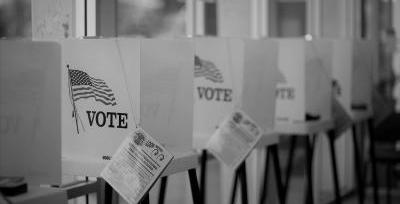North Dakota
Governor
Lt. Governor Tammy Miller (R) and Congressman Kelly Armstrong (R-ND) competed in the Republican primary to replace incumbent Governor Doug Burgum (R), who announced early this year that he would not seek reelection after completing his second term. Armstrong secured his party’s nomination with over 73% of the vote. Born in Dickinson, ND, he earned a Bachelor of Psychology from the University of North Dakota and a Juris Doctor from the University of North Dakota School of Law. Before his congressional election in 2018, Armstrong was a member of the North Dakota State Senate and a partner at the law firm Reichert Armstrong. He also chaired the North Dakota Republican Party from 2015-2018. If elected to the governor’s office, Armstrong plans to prioritize addiction and the opioid crisis, address immigration, support law enforcement and the rule of law, and support the state’s agriculture industry. Armstrong has been endorsed by the NDGOP and former President Donald Trump (R).
State Senator Merrill Piepkorn (D) ran unopposed in the Democratic primary for governor. Originally from Stanley, Piepkorn was raised in Fargo and attended Concordia College and River Basin Auction School. He has held various positions in the media industry, most recently as president of Prairies Airwaves. First elected to the State Senate in 2016 to represent part of Fargo, Piepkorn currently serves as Assistant Minority Leader. His top issues are education, childcare, tax relief, agriculture, small business, workforce development, energy resources, and mental health services.
The Cook Political Report and Larry Sabato’s Crystal Ball have rated this race as safely Republican.
State Treasurer
Thomas Beadle (R), the incumbent, is the only candidate in the race. Facing no primary competition from fellow Republicans or a general election challenge from a Democratic candidate, Beadle will breeze to another four-year term as the peace garden state’s chief financial officer.
Beadle’s campaign has focused on ESG opposition and protection of the state’s agriculture and energy industries. Beadle is focused on growing the state’s legacy fund, improving transparency and accountability, supporting education, and increasing government efficiency. Beadle was first elected as state treasurer in 2020. He previously served in the state House along with a private career in real estate.
Congressional Age Limits Measure
North Dakota voters also considered a ballot measure to enact age limits for the state’s federal delegation. This constitutional amendment prevents an individual from being elected or appointed to serve in the United States Senate or United States House of Representatives if the individual would become 81 years old by December 31 of the year preceding the end of their term. The measure passed with 61% of the vote. Experts predict the measure will encounter legal challenges: In 1995, the Supreme Court ruled that states “cannot impose additional restrictions, such as term limits, on its representatives in the federal government beyond those provided by the Constitution.”
State Legislatures
North Dakota
Forty-seven (47) of the 94 seats in the North Dakota House are up for reelection this year as well as 23 of the 47 Senate seats. There were eight open seats in the Senate while all 23 seats in the House had at least one incumbent running for reelection. North Dakota is expected to maintain their Republican trifecta.
Maine
Voters in Maine also held a primary for state legislative offices. All 151 seats in the House and all 35 seats in the Senate are up for reelection. Thirty-three (33) incumbents in the House and six in the Senate, including Senate Majority Leader Eloise Vitelli (D), did not file for reelection this year. Speaker of the House Rachel Talbot Ross (D) is running for state Senate, leaving a leadership void in the House as well. Democrats are expected to maintain—though, possibly slim—control of both chambers following the general election.
Nevada
All 42 seats in the Nevada Assembly and 10 of the 21 seats in the Senate are up for reelection this year. Eleven (11) incumbents in the House and four in the Senate did not file for reelection. Eight (8) House candidates did not garner any challengers, guaranteeing return in the 2025 legislative session. Democrats are expected to maintain legislative majorities, and Republicans will be fighting to hold off Democrats from gaining a supermajority in both chambers, which would allow the party to override Governor Joe Lombardo’s (R) veto authority.
South Carolina
All 124 seats in the South Carolina House of Representatives and all 46 seats in the Senate are up for reelection. Fifty-one (51) incumbents faced primary challenges this year, including 16 Democrats and 35 Republicans. Twenty (20) of the seats were open, including five in the Senate and 15 in the House. Senate President Thomas Alexander (R) and Senate Majority Leader Shane Massey (R) faced no challengers, securing their reelection. Senate Minority Brad Hutto (D) will face a Republican challenger in November. All House Leadership won their election outright. Republicans are slated to maintain control of the legislature.
